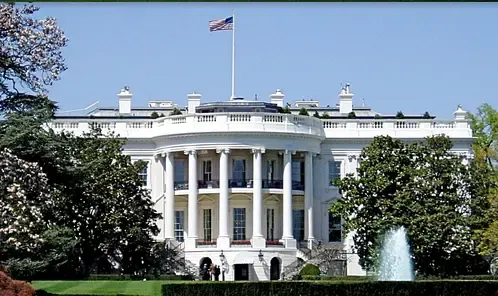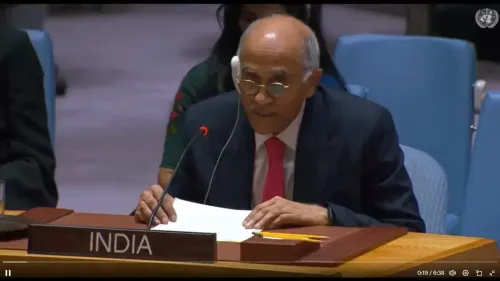Did a Federal Judge Deny California's Request to Halt Trump's Military Deployment in Los Angeles?

Synopsis
Key Takeaways
- Federal Judge denied California's request to block military deployment.
- Deployment includes 4,000 National Guard troops and 700 Marines.
- California claims violation of the Posse Comitatus Act.
- Federal lawyers call the request legally meritless.
- Hearing scheduled for Thursday to discuss California's motion.
Sacramento, June 11 (NationPress) — A federal judge has turned down California Governor Gavin Newsom's urgent plea to prevent the Trump administration from swiftly deploying military forces in Los Angeles, undermining the state's endeavors to contest federal control over domestic military actions.
US District Judge Charles Breyer opted not to issue a temporary restraining order that would have halted nearly 4,000 National Guard troops and 700 Marines from patrolling the city right away. Instead, Breyer has provided the Trump administration until 2:00 p.m. Wednesday to respond to California's emergency motion, as reported by Xinhua news agency.
This decision followed arguments from California officials asserting that President Donald Trump's deployment breached federal law, specifically the Posse Comitatus Act, which forbids active-duty military personnel from performing civilian law enforcement duties.
Newsom and Attorney General Rob Bonta contended in their Tuesday morning motion that the military's presence posed “immediate and irreparable harm” to state sovereignty.
On the other hand, federal government lawyers labeled Newsom's request as “legally meritless” and cautioned that obstructing the deployment would be “extraordinary, unprecedented, and dangerous.”
They argued such a move could “jeopardize the safety of Department of Homeland Security personnel and disrupt the Federal Government’s operational capabilities.”
US Defense Secretary Pete Hegseth announced that this military assignment would last for 60 days, with an estimated cost of $134 million.
This deployment marks one of the largest domestic military operations in recent times. Breyer, brother of retired Supreme Court Justice Stephen Breyer, has arranged a hearing for 1:30 p.m. Thursday local time to review California's motion.
The Trump administration is required to submit their opposition brief by 11:00 a.m. Wednesday local time, with California permitted to respond by Thursday morning.
If Breyer ultimately rules against California, the state has the option to appeal to the 9th US Circuit Court of Appeals, which holds a narrow majority of Democratic appointees.
Regardless of the temporary restraining order's outcome, California's underlying lawsuit challenging the constitutionality of the deployment will persist.









